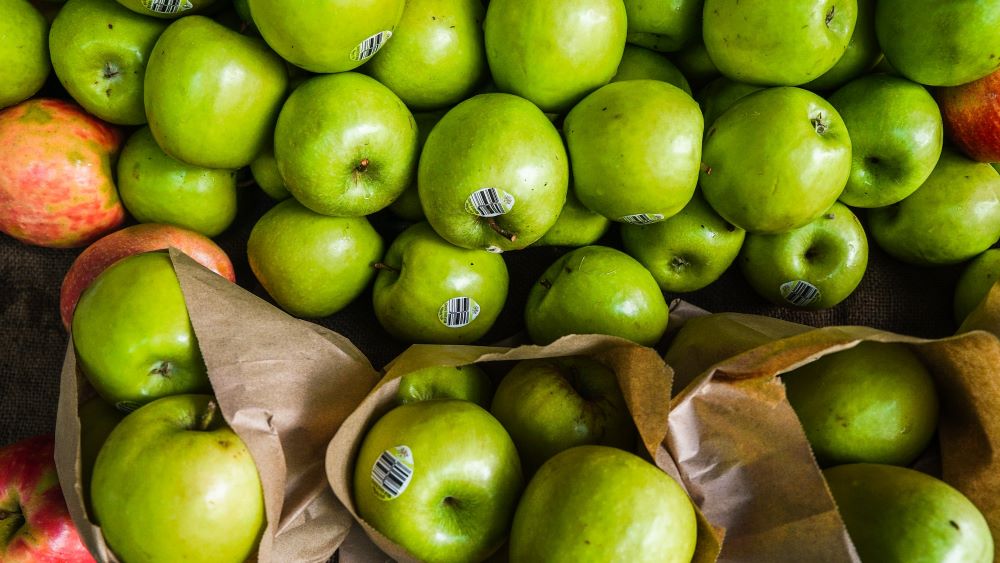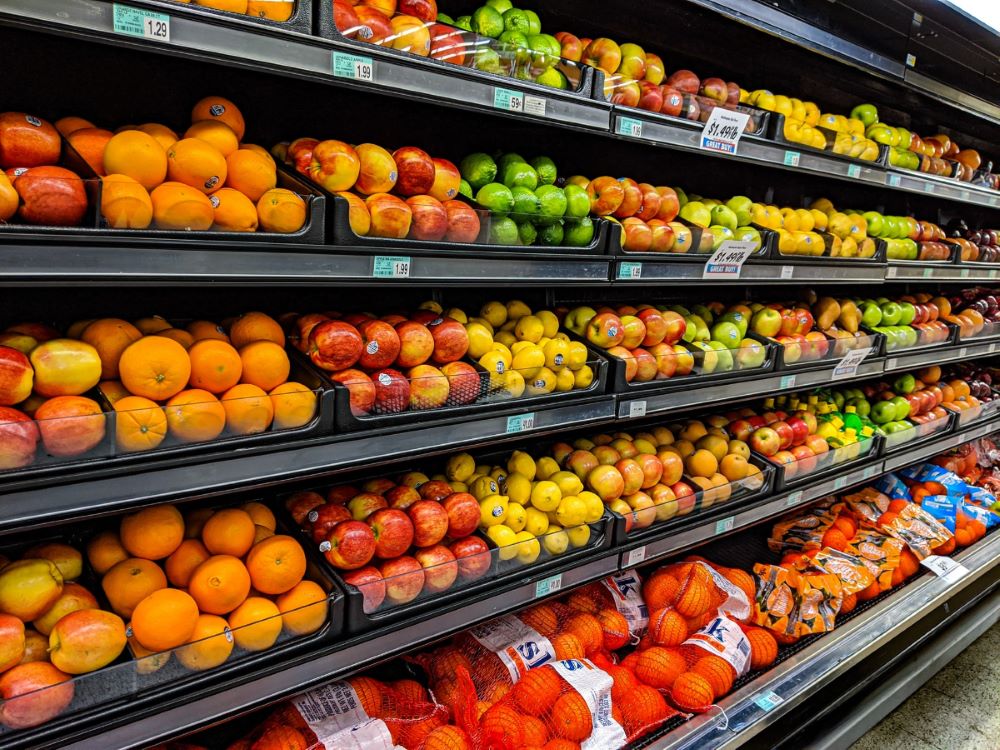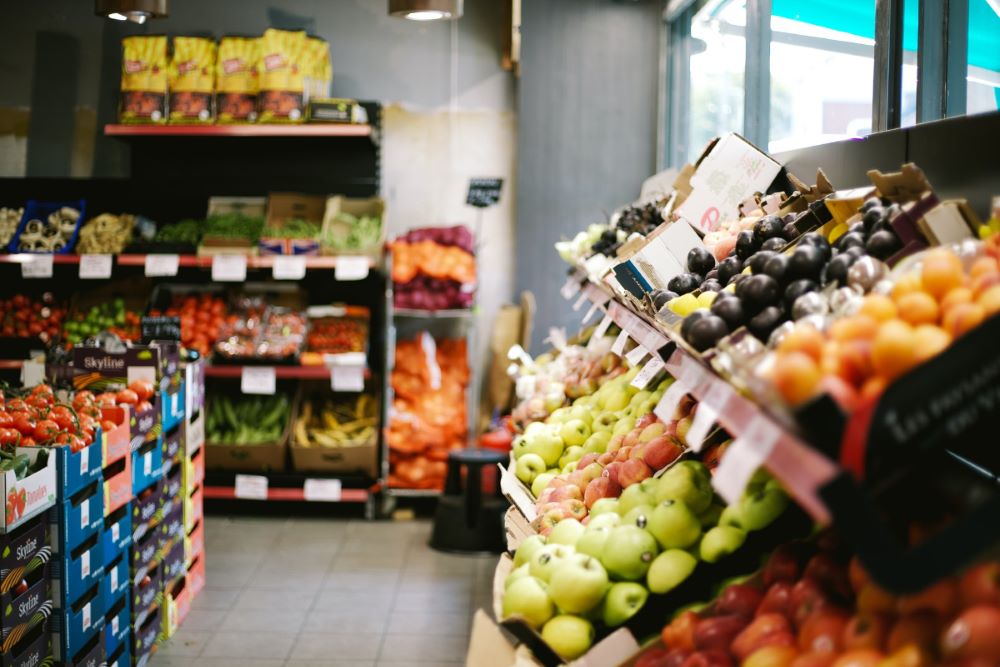Recent Posts
- Home
- Elevate Blog
- Are Produce Stickers Biodegradable?
Are Produce Stickers Biodegradable?
Posted on

The Hidden Plastic Problem: Produce Stickers
Have you ever wondered about the tiny stickers on your fresh produce? Every time you buy fruits and vegetables, you're inadvertently bringing home more than just food – you're bringing home tiny pieces of plastic.
At first glance, these produce stickers might seem harmless, but their impact on composting and the environment is more significant than you'd think. Often unnoticed, these stickers frequently find their way into compost bins, becoming a source of contamination.

Why Do We Have Produce Stickers?
While consumers and composters might find them annoying, PLU stickers serve grocery stores and retailers by encoding valuable information about the produce they're attached to.
The first person to use produce stickers on a large scale was Tom Mathison, founder of Stemilt Growers. Seeing them as a potential marketing strategy, he included the name of his farm and later added a logo to show that his produce was organic.
PLU codes were added in the 1990’s. These 4-digit codes (sometimes 5-digit for organic produce) make identification easier - They store important information about the produce such as price, type, and origin. They can also sometimes have interesting or creative designs!
These stickers can also help to prevent food waste at large grocery chains, the PLU codes are used to track inventory more accurately.
Unfortunately produce stickers are often not made from eco-friendly material - while they can help reduce waste in some areas, they also introduce waste of their own. While these stickers serve a purpose, their environmental impact is a growing concern.

What are Produce Stickers Made From?
Fruit and vegetable stickers are usually made from plastic. They need to be water resistant to stand up to the storage and selling conditions of fresh produce. They also need to be flexible enough to adhere to round or uneven surfaces.
Contrary to some misconceptions, fruit stickers are not edible. Accidentally eating one now or then probably won't hurt you, but just because something can technically be eaten does not mean it is edible!
Are Produce Stickers Biodegradable?
The most common type of produce sticker is made from petroleum-based plastic. They are not biodegradable and need to be removed before composting.
Some might argue that produce stickers are so small that removing them from compost is mostly a cosmetic issue. When reducing plastic waste we shouldn’t only consider the size of the individual item. While one sticker may be small, in 2021 the U.S. consumed 139 lbs of fresh vegetables and 116.9 lbs of fresh fruit per capita. A huge proportion of those fruits and vegetables will have stickers!
Despite good intentions, many of these tiny stickers mistakenly end up at composting facilities. Because of their small size they are easy to miss when you’re putting fruit or vegetable scraps in your compost bin. They then make their way to composting facilities where removing them is difficult, expensive, and time consuming. These stickers also frequently show up in home or community compost bins.
Not to mention that their small size is a big part of the problem! They’re easy to miss, difficult to pick out by hand, and at industrial composting facilities they can slip past the compost screening equipment.
By dismissing small plastic stickers as inconsequential, we risk inadvertently contaminating compost and putting even more plastic into the environment.
So, what should you do with produce stickers?
We can make sure that we remove plastic stickers before putting fruit and vegetable scraps into the compost, but PLU stickers do not need to be made from plastic in the first place!
Eco-Friendly Alternatives to Plastic Produce Stickers
There are several different ideas for eco-friendly stickers commonly discussed among sustainable producers:
Compostable
Produce stickers made from innovative bioplastics can stand up to the same conditions as petroleum-based plastic stickers!
We might be little biased, but we think compostable stickers are the best option for produce! The sticker matches the intended end-of-life solution for the fruit peel or veggie scraps, and they can be safely put in the compost bin together.
Laser Etching
This approach eliminates the need for stickers altogether. The PLU codes are directly etched onto the skin or rind of fruit and vegetables, a great option for produce with thick rinds. Unfortunately purchasing the equipment needed can be cost prohibitive for smaller producers.
Paper
While paper stickers may seem like a good solution, uncoated paper will not stand up to the moisture in fruit production and storage. Coating the paper usually involves using plastic, and then we are right back where we started! Paper stickers are also often not flexible enough to stick to uneven or very round fruits.
Recyclable Plastic
Recyclable stickers are great for many applications, however they still need to be removed from the fruit before disposal. Recyclable stickers are not necessarily compostable and may still contaminate compost.
For more efficient waste reduction, items that are frequently discarded together should be designed for the same disposal method.
Compostable Produce Stickers
Compostable produce stickers are designed to go straight into the compost bin with fruit and vegetable scraps. They can help minimize the impact of contamination on compost quality and value. In early 2023 the Canadian Product Marketing Association released guidance encouraging Canada’s fresh produce sector to switch to compostable PLU stickers.
With compostable stickers, you can compost them directly alongside your fruit or vegetable scraps (you don’t even need to peel them off first!)
What’s the Difference Between Biodegradable and Compostable?
PURE Labels compostable stickers are both biodegradable and compostable. Our bioplastic material options are flexible as well as water, grease, and oil resistant - making them perfect for use as produce stickers. Their performance is almost exactly the same as their plastic counterparts, but with the added benefit that they will break down at end-of-life as part of a healthy compost pile. Every component of PURE Labels is compostable, including the ink and adhesive.
Switching to compostable stickers? We can help.
Connect with a sustainable packaging expert
Contact Us
The efficiency of composting facilities plays a crucial role in developing the circular economy. As we continue to build a more sustainable future, it’s important that we are aware of the consequences of plastic use. Even small parts, such as plastic stickers, have the potential to cause big problems for the environment.
Widespread use of compostable labels and stickers can significantly reduce compost contamination - bringing us closer to our goal of ending landfills!
 Loading... Please wait...
Loading... Please wait...




